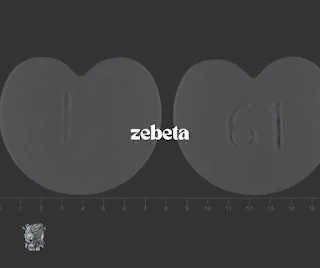Table of Contents
What is Zebeta?
Zebeta is a beta-blocker that influences the heart and circulation, regulating blood flow through arteries and veins. It is primarily prescribed for the treatment of hypertension, effectively managing high blood pressure. Despite its primary use, Zebeta might have additional applications beyond those listed in this medication guide.
Warnings
Avoid skipping doses or discontinuing Zebeta without consulting your doctor, as abrupt cessation may worsen your condition or lead to severe heart problems. If you anticipate undergoing any form of surgery, inform the surgeon in advance about your use of this medication. Zebeta is not suitable for individuals with critical heart conditions such as “AV block,” severe heart failure, or instances of fainting caused by slow heartbeats.
Continue using Zebeta as directed even if you feel well, as high blood pressure can be asymptomatic. Consistent blood pressure management may be necessary throughout your life.
Before taking this medicine
Do not use Zebeta if you are allergic to bisoprolol or if you have severe heart conditions such as “AV block,” significant heart failure, or a history of fainting due to slow heartbeats. To ensure Zebeta’s safety for you, disclose to your doctor any history of congestive heart failure, coronary artery disease, circulation problems like Raynaud’s syndrome, respiratory disorders (such as asthma or chronic obstructive pulmonary disease), diabetes, liver or kidney disease, a thyroid disorder, or any allergies.
The impact of Zebeta on unborn babies is unknown, so inform your doctor if you are pregnant or planning to become pregnant. Similarly, it’s unclear whether bisoprolol passes into breast milk, and thus, discuss breastfeeding considerations with your doctor. Zebeta is not approved for individuals under 18 years old.
How should I take Zebeta?
Take Zebeta precisely as prescribed by your doctor, adhering to all instructions on your prescription label. Your doctor may adjust your dose occasionally for optimal results. Never exceed or reduce the prescribed dosage without consulting your doctor, as sudden discontinuation may exacerbate your condition or lead to serious heart problems.
If surgery is on the horizon, inform the surgeon in advance about your Zebeta use. Regular blood pressure checks are essential. Store Zebeta at room temperature, away from moisture and heat, keeping the bottle tightly closed when not in use.
What happens if I miss a dose?
Take the missed dose as soon as you remember. If it’s almost time for your next scheduled dose, skip the missed one, and do not double up to make up for it.
What to avoid
Zebeta may impair thinking or reactions, so exercise caution when driving or performing activities that require alertness. Be cautious when rising from a sitting or lying position to avoid dizziness. Avoid consuming alcohol, as it can amplify Zebeta’s side effects.
Zebeta side effects
Seek emergency medical assistance if you experience signs of an allergic reaction to Zebeta, such as hives, difficulty breathing, or swelling of the face, lips, tongue, or throat. Contact your doctor promptly if you encounter shortness of breath, swelling, rapid weight gain, slow heart rate, palpitations, numbness, tingling, cold extremities, lightheadedness, eye pain, vision problems, or bronchospasm (wheezing, chest tightness, difficulty breathing).
Common side effects may include headache, fatigue, insomnia, joint pain, swelling, or cold symptoms like a stuffy or runny nose, cough, or sore throat.
Dosing information
Usual Adult Dose of Zebeta for Hypertension:
- Initial dose: 5 mg orally once a day
- Dose Titration: If the desired response is not achieved, the dose may be increased to 10 mg, then to 20 mg if necessary
- Maximum dose: 20 mg per day
Comments:
- Dosage should be individualized; some patients may benefit from a starting dose of 2.5 mg once a day.
- Blood pressure-lowering effects are typically observed within 1 week and remain relatively stable thereafter.
Use: Management of hypertension, either as a standalone treatment or in combination with other antihypertensive agents.
What other drugs will affect Zebeta?
Inform your doctor about all current medicines and any newly initiated or ceased medications, particularly insulin or oral diabetes medicine, rifampin, or heart/blood pressure medications like clonidine, digitalis, digoxin, diltiazem, reserpine, or verapamil. This list is not exhaustive, and other interactions may occur.

